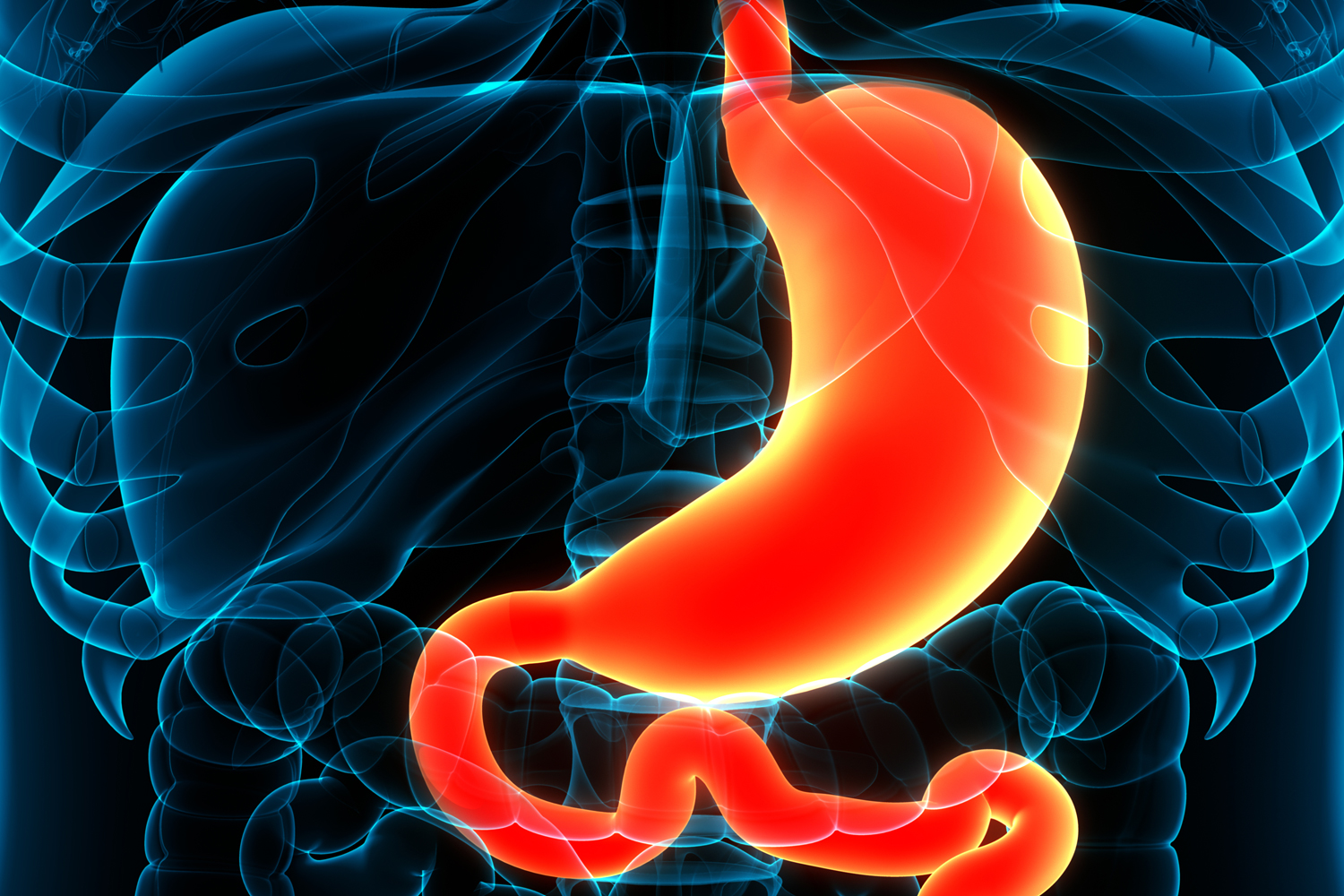Every week, the editors of Cancer Today magazine bring you the top news for cancer patients from around the internet. Stay up to date with the latest in cancer research and care by subscribing to our e-newsletter.
Lasting Effects for People After Gastrectomy
People at high risk for a deadly form of stomach cancer can turn to stomach removal to prevent the cancer from forming, but a recent study found people who get the procedure continue to deal with effects years after the procedure. The study, published in the Journal of Clinical Oncology, followed 126 people who had total gastrectomy to remove the stomach after they were found to have a mutation in the CDH1 gene that puts them at high risk for developing hereditary diffuse gastric cancer, an often deadly cancer that develops in the stomach’s lining. Though gastrectomy requires permanent changes to their eating habits and taking regular supplements, patients report feeling that the procedure has saved their lives and that they are able to live a full life going forward without a stomach according to an article in Cancer Currents, a research blog published by the National Cancer Institute (NCI). The study found that more than 90% of participants who were followed for more than two years were dealing with at least one chronic complication from the procedure. The observational study sought to find effects that weren’t caught in quality-of-life surveys and post-operation check-ups. “Patients return to the clinic and say they feel okay, but all you have to do is sit with them for a little while and stuff comes out; problems with family dynamics or not being able to get through the workday because of symptoms,” lead investigator Jeremy Davis, of the NCI’s Center for Cancer Research, told Cancer Currents.
Rising Cancer Incidence in Adults Under 50
Though cancer deaths continue to decline, a new report from the American Cancer Society (ACS) identifies a rising trend of cancer diagnoses in people under 50 as a cause for concern. Diagnoses before age 50, called early-onset cancers, rose over the period from 1990 to 2020, while cases for people ages 51 to 64 and those over 65 were dropping. The rise is most pronounced in colorectal cancer, which went from the fourth leading cause of cancer death for men and women under 50 in the 1990s to the current leading cause of cancer death for men and second leading cause for women, after breast cancer. “There’s a concern that, as the population ages, that what is currently an increase in young-onset disease will turn into increases in mid-onset and late-onset disease as well. So if the epidemiology of this is changing, this could be the beginning of a wave of increased cancers that may persist or may continue to increase over the next decades,” Scott Kopetz, a gastrointestinal medical oncologist at the University of Texas MD Anderson Cancer Center in Houston, said in an article on CNN. The report estimates that the U.S. will see more than 2 million new cancer cases this year, and about 600,000 cancer deaths.
Decline in Tobacco Use Slower Than Expected
Tobacco use is dropping around the globe but not as fast as experts hoped, according to a Jan. 16 report from the World Health Organization. About 33% of people over age 15 were using tobacco products in 2000, but that rate dropped to 22% in 2022 and is expected to reach 18% by 2030. The findings support the tobacco control efforts that many countries have pursued in recent decades—such as providing smoke-free environments, restricting tobacco advertisements, adding health warnings to packages, and increasing prices—according to Stella Bialous, a tobacco control researcher who was not involved in the report, in an article from NPR. “All these things work. Not all countries are doing these things to the maximum extent possible. And I think that’s where we would see trends decline a little sharper,” Bialous said. The report did not include electronic cigarettes, for which there is not complete data, or new tobacco products, such as pouches and lozenges. Though cigarettes are still the most profitable tobacco product, Bialous said the industry also sees the falling demand. “And one of the things they’re doing is coming up with all kinds of these new nicotine products, which they’re claiming to be safe. And now more and more studies are [showing] that they’re not,” Bialous told NPR.
Cancer Today magazine is free to cancer patients, survivors and caregivers who live in the U.S. Subscribe here to receive four issues per year.





